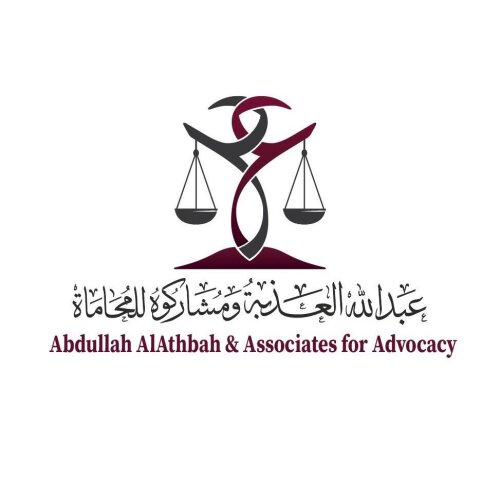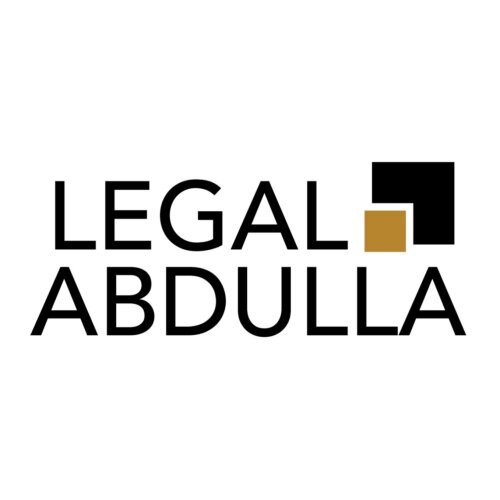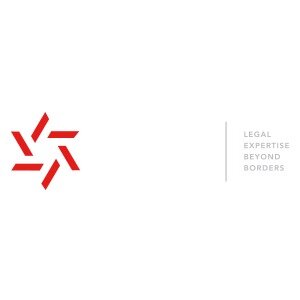Best Sanctions & Export Controls Lawyers in Qatar
Share your needs with us, get contacted by law firms.
Free. Takes 2 min.
Or refine your search by selecting a city:
List of the best lawyers in Qatar
About Sanctions & Export Controls Law in Qatar
Sanctions and export controls law in Qatar regulates the international movement of goods, technology, and services in order to comply with both local and international requirements. Qatar, as a member of the Gulf Cooperation Council (GCC), adheres to various United Nations (UN) Security Council sanctions and has established its own controls to protect national security, comply with international agreements, and prevent illegal trade activities. These laws dictate what can be imported, exported, or transshipped through Qatar, with special restrictions on dual-use items, military goods, and goods bound for sanctioned countries. The legislation also supports efforts to combat terrorism and prevent proliferation of weapons of mass destruction.
Why You May Need a Lawyer
Legal assistance is often necessary when dealing with sanctions and export controls because the laws and regulations are complex and subject to change. Common situations where you may require legal help in Qatar include:
- Engaging in international trade or shipping goods across borders.
- Establishing business partnerships with foreign entities or individuals.
- Investigating whether a product or technology is classified as dual-use or otherwise controlled.
- Ensuring compliance with both Qatari and international sanctions, especially when dealing with countries or entities subject to embargoes.
- Responding to enforcement actions or investigations by local authorities.
- Advising on voluntary disclosures if an inadvertent violation has occurred.
- Navigating permit and licensing requirements for the export, re-export, or import of sensitive goods.
- Drafting contracts to address compliance with export controls and sanctions clauses.
Local Laws Overview
Qatar implements various laws and regulations related to sanctions and export controls. Key legal aspects include:
- The Law on Combating Terrorism and its Executive Regulations, which include measures for freezing assets and restricting transactions with listed persons.
- Customs law provisions that prohibit or restrict the import, export, or transit of certain goods without appropriate licenses. This includes weapons, military equipment, and dual-use goods that may have both civilian and military applications.
- Regulatory compliance with UN Security Council resolutions and internationally imposed sanctions. The Qatari authorities routinely update their sanction lists in line with international developments.
- Banking and financial regulations prohibiting financial dealings with designated individuals or entities, as established by the Qatar Central Bank.
- Strict penalties for violations of export controls and sanctions, ranging from administrative fines to criminal prosecution, asset forfeiture, and business license suspension or revocation.
- Due diligence obligations on companies and individuals engaging in international transactions to ensure full compliance.
Frequently Asked Questions
What are export controls and why do they matter in Qatar?
Export controls are laws that regulate the transfer of certain goods, technology, and services out of the country. In Qatar, they are designed to protect national security, prevent the proliferation of dangerous materials, and ensure compliance with international agreements.
What is considered a dual-use item under Qatari law?
Dual-use items are products, technologies, or software with both civilian and military applications. Examples include chemicals, telecommunications technology, and advanced electronics. These items generally require special authorization for export or transshipment.
How does Qatar implement international sanctions?
Qatar incorporates international sanctions, especially those mandated by the United Nations Security Council, into its legal and regulatory framework. Local authorities regularly update sanction lists and enforce relevant prohibitions on transactions, imports, and exports.
What are the penalties for violating sanctions or export controls in Qatar?
Penalties can include administrative fines, criminal prosecution, imprisonment, asset forfeiture, and suspension or revocation of business licenses. The severity depends on the nature and extent of the violation.
Do I need a license to export goods from Qatar?
Certain categories of goods, especially dual-use items, weapons, sensitive technology, or materials listed under international treaties, require an export license issued by Qatari authorities.
How can I find out if a person or company is on a sanctions list?
You can review updated sanctions lists published by the Qatar Central Bank, the Ministry of Commerce and Industry, and other relevant authorities. Due diligence is essential before entering into cross-border transactions.
Is it possible to apply for an exemption or special authorization under sanctions law?
In some cases, exemptions or licenses may be granted by the relevant Qatari authority, especially where there are humanitarian or legitimate commercial justifications. Each application is considered on a case-by-case basis.
What is the role of financial institutions under Qatar’s sanctions regime?
Banks and other financial institutions are required to screen transactions and freeze assets of listed individuals or entities. They must report suspicious transactions to the authorities and implement internal compliance programs.
Are there restrictions on providing services or technology to certain countries?
Yes, Qatar restricts the provision of certain services and technology to countries or entities subject to international or national sanctions. Consulting a lawyer is vital to ensure compliance before providing any cross-border service.
What should I do if I suspect a possible violation of export controls?
You should immediately consult a legal expert for guidance. In certain circumstances, making a voluntary disclosure to the authorities may help mitigate penalties, but this should always be done with legal advice.
Additional Resources
If you require further information or wish to verify compliance with sanctions and export controls in Qatar, you may refer to the following resources:
- Qatar Ministry of Commerce and Industry - Responsible for regulating international trade and issuing export licenses.
- Qatar Central Bank - Publishes financial sanction lists and issues compliance guidelines for financial institutions.
- Qatar Customs Authority - Provides information on import and export restrictions and procedures.
- Qatar Financial Information Unit - Handles reports of suspicious financial activities related to sanctions evasion.
- Legal consultancies specializing in international trade, compliance, and regulatory matters.
- United Nations Security Council Sanctions Committee reports, as adopted and implemented by Qatar.
Next Steps
If you believe you require legal assistance with sanctions and export controls in Qatar, you should take the following actions:
- Document all relevant facts about your intended business, transaction, or export activity.
- Compile any correspondence, contracts, or communications with foreign entities or suppliers.
- Review available information on Qatari laws and international sanctions applicable to your area or product.
- Contact a qualified lawyer or legal consultancy with experience in sanctions and export controls in Qatar.
- Seek an initial consultation to evaluate your risk profile and determine any licensing or compliance requirements.
- If you are facing an investigation or enforcement action, engage legal counsel without delay to protect your rights.
Early legal advice is crucial for avoiding costly mistakes or violations, ensuring compliance, and safeguarding your business interests when navigating the complex world of sanctions and export controls in Qatar.
Lawzana helps you find the best lawyers and law firms in Qatar through a curated and pre-screened list of qualified legal professionals. Our platform offers rankings and detailed profiles of attorneys and law firms, allowing you to compare based on practice areas, including Sanctions & Export Controls, experience, and client feedback.
Each profile includes a description of the firm's areas of practice, client reviews, team members and partners, year of establishment, spoken languages, office locations, contact information, social media presence, and any published articles or resources. Most firms on our platform speak English and are experienced in both local and international legal matters.
Get a quote from top-rated law firms in Qatar — quickly, securely, and without unnecessary hassle.
Disclaimer:
The information provided on this page is for general informational purposes only and does not constitute legal advice. While we strive to ensure the accuracy and relevance of the content, legal information may change over time, and interpretations of the law can vary. You should always consult with a qualified legal professional for advice specific to your situation.
We disclaim all liability for actions taken or not taken based on the content of this page. If you believe any information is incorrect or outdated, please contact us, and we will review and update it where appropriate.
Browse sanctions & export controls law firms by city in Qatar
Refine your search by selecting a city.

















